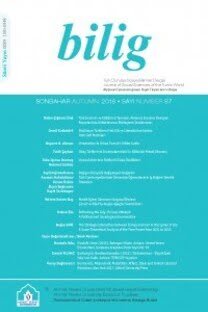Is There a Relationship between Grade Average Point and Students’ Perceptions with Regard to Cheating Factors?
___
Ames, Carole and Jennifer Archer (1988). “Achievement goals in the classroom: Students’ learning strategies and motivation processes”. Journal of Educational Psychology 80: 260–267.Baird, John S. (1980). “Current trends in college cheating”. Psychology in the Schools 17: 515–522.
Calabrese, Raymond L. and John T. Cochran (1990). “The relationship of alienation to cheating among a sample of American adolescents”. Journal of Research and Development in Education 23(2): 65–72.
Cochran, John K. et al. (1998). “Academic dishonesty and low self-control: An empirical test of a general theory of crime”. Deviant Behavior: An Interdisciplinary Journal 19: 227–255.
Davis, Stephen F. et al. (1992). “Academic dishonesty: Prevalence, determinants, techniques, and punishments”. Teaching of Psychology 19: 16–20.
Goodenow, Carol (1993). “Classroom belonging among early adolescents: Relationships to motivation and achievement”. Journal of Early Adolescence 13: 21–43.
Graham, Mari Ann et al. (1994). “Cheating at small colleges: An examination of student and faculty attitudes and behaviours”. Journal of College Student Development 35: 255–260.
Haines, Valerie J. et al. (1986). “College cheating: Immaturity, lack of commitment, and the neutralizing attitude”. Research in Higher Education 25: 342–354.
Houston, John P. (1977). “Four Components of Rotter’s internal – external scale and cheating”. Contemporary Educational Psychology 2: 275-283.
Jensen, Lene Arnett et al. (2002). “It’s wrong but everybody does it: academic dishonesty among high school and college students”, Contemporary Educational Psychology 27: 209–228.
Johnson, Charles D. and John Gromly (1972). “Academic Cheating: The contribution of sex, personality and situational variables”. Developmental Psychology 6: 320-324.
Juvonen, Jaana and Kathryn R. Wentzel (1996). Social motivation: Understanding children’s school adjustment. New York: Cambridge Univ. Press.
Kelly, Jeffrey A. and Leonard Worell (1978). “Personality Characteristics, parents behaviors, and sex of subject in relation to cheating”. Journal of Research in Personality 12: 179-188.
Karabenick, Stuart. A. and K. Srull Tomas (1978). “Effects of Personality and Situational Variation in Locus of Control on Academic Cheating: Determinants of the ‘Congruence Effect’ ”. Journal of Personality 46: 72–95.
McCabe, Donald M., Linda Kelebe Trevino and Kenneth. D. Butterfield (2001). “Cheating in academic institutions: a decade of research”. Ethics & Behavior 11: 219–232.
McLaughlin, Rose D. and Seteven M. Ross (1989). “Student cheating in high school: a case of moral reasoning vs. ‘fuzzy logic’”. High School Journal 72: 97–104.
Michaels, James W. and Terance D. Miethe (1989). “Applying theories of deviance to academic cheating”. Social Science Quarterly 70: 870–885.
Midgley, Carol and Tim, Urdan (2001). “Academic self-handicapping and achievement goals: A further examination”. Contemporary Educational Psychology 26: 61–75.
Newstead, Stephen E., Arlene Franklyn-Stokes and Penny Armstead (1996). “Individual differences in student cheating”. Journal of Educational Psychology 88: 229–241.
Roth, Nancy L. and Donald L. McCabe (1995). “Communication strategies for addressing academic dishonesty”. Journal of College Student Development 36: 531–541.
Schab, Fred (1991). “Schooling without learning: thirty years of cheating in high school”. Adolescence 26: 839–847.
Tang, Shengming and Zuo, Jiping (1997). “Profile of college examination cheaters”. College Student Journal 31: 340–346.
Tibbetts, Stephen. G. and David L. Myers (1999). “Low self-control, rational choice, and student test cheating”. American Journal of Criminal Justice 23: 179–200.
Vitro, Frank T. and Lowell A. Schoer (1972). “The effects of probability of test success, test importance, and risk of detection on the incidence of cheating”. Journal of School Psychology 10:269–277.
Vitro, Frank T. (1971). “The Relationship of classroom dishonesty to perceived parental discipline”. Journal of College Student Personnel 12: 427–429.
Ward, David. A. and L. Beck. Wendy (1990). “Gender and Dishonesty”. Journal of Social Psychology 130(3): 333–339.
- ISSN: 1301-0549
- Yayın Aralığı: 4
- Başlangıç: 1996
- Yayıncı: Ahmet Yesevi Üniversitesi Mütevelli Heyet Başkanlığı
Atabetü’l-Hakayık’ta Birleşik Eylemler
Mehmed Emin Efendi’nin Seyahatnamesine Göre Eski Bir Türk Şehri: Dehistan
Balcı Yunus (2008). Tanpınar, Trajik Bir Şair ve Şiiri. İstanbul: 3F Yayınları 157 s.
Sultan Abdülmecid Döneminde İstanbul-Ayasofya Camii'ndeki Onarımlar ve Çalışmaları Aktaran Belgeler
Balcı Yunus (2008). Tanpınar, Trajik Bir Şair ve Şiiri. İstanbul: 3F Yayınları. 157 s.
Türk Dillerinde Odaksıl Şimdiki Zaman İşaretleyicisi ve Kıbrıs Türkçesinde Eksikliği
Nergisî’nin Meşâkku’l-Uşşâk’ında Osmanlı Toplum Hayatından Yansımalar
Avrupa Birliği'nin Yeni Mottosu 'Farklılıkta Birlik' ve Türkçenin 'Farklılıkta Birlik'teki Yeri
